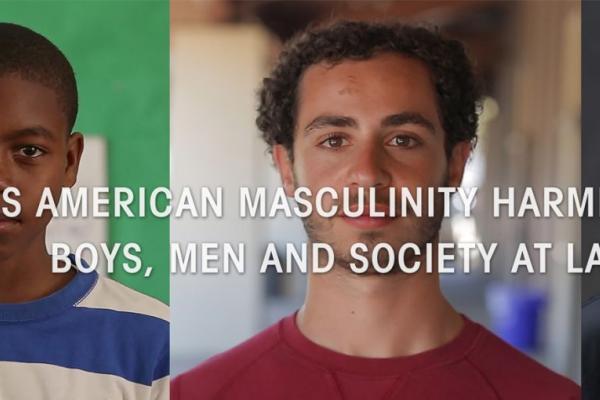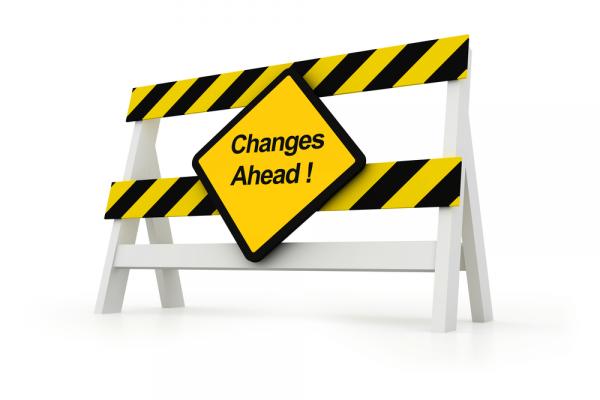A new report by the Equal Justice Initiative documents in horrific detail the nation’s widespread practice of lynching and points to a link between lynching and a practice that persists today: capital punishment.
In the Jim Crow South, lynching declined as officials turned to executions as an alternative method for killing blacks in disproportionate numbers.
This report challenges us to confront our nation’s legacy of racial violence. Sadly, too many Christians were complicit in this violence, which has prompted Christian denominations to apologize and emphasize racial reconciliation. Last week, the Southern Baptist Convention held a two-day race summit in which it urged pastors to do more to diversify their churches.
These are important steps.
But they only mark time if important actions don’t follow.
In this reflection, Rev. Dr. John Dickson talks about total dependency on the bread of life, and being one of the first cultures in history that doesn't see the process of food being grown, harvested, and prepared.
"For most of us food is like magic, it just appears — but the Lord's prayer says, No, no, everything comes from the hand of God."
If you listen, each bucket has its own special sound. First are the empty buckets and their muted ting of dripping sap falling straight to the galvanized steel bottom. Next is the dop that reverberates from the slightly sweet drop running off the spile to a thin layer of liquid below. But it is the soft, and all too rare and timeless plop that I wait for. That quiet plop (or sometimes plip) signals that over half of that the three-gallon bucket is full and the tap is giving in abundance.
There is a slight quickening of the heart when the bucket is heavy enough to need two hands to pull off the hook. Then an involuntary smile to hear the pitch of the shwoosh ascend as the smaller bucket presents it’s offering to the larger. But sometimes, before I touch the bucket at all, I stop and wait to hear what it has to say. Ting? Dop? Plip? Plop?
I look at the tree and then its neighbors. I strain to hear the rhythm of the buckets around me and wonder, what makes one tap run so well when others are nearly dry?
In 1 Corinthians 1:18-31 Paul says that “the message about the cross is foolishness to those who are perishing, but to us who are being saved it is the power of God.”
I can think of many times when I’ve felt foolish. Like forgetting someone’s name, or worse, calling them by the wrong name. Or when I read The Life of Pi and thought it was based on a true story because of the voice of the journalist.
The times when being foolish has really hurt, though, were when I placed trust in people only to be let down.
Fifty years ago, the sleeping giant of America’s religious communities shook off their sleep and rose to change the country in a crisis over whether democracy would grow or falter.
Today we face a crisis over the very fabric of life – human and more-than-human – on our planet. Is there anything the religious communities, now yawning their way just beginning to awake, can bring to dealing with that crisis?
There is. Much of it comes from the Hebrew Scriptures, what Christians call “the Old Testament.” It reaches a climax in the Exodus story, recalled each year in the Jewish festival of Passover and to some extent in the Holy Week that in Christian tradition is rooted in Passover. But it pervades the Hebrew Bible.
For that is the record of the spiritual struggles of an indigenous people of shepherds and farmers in their relationship with YyyyHhhhWwwwHhhh, the Holy One Who breathes all life. They centered their God connection in sacred relationship with their land, especially through the foods they grew and then offered on the altar.
Our own generation, facing a catastrophic crisis in the Earth-earthling relationship, must go back to the Bible for guidance on how to apply indigenous wisdom to the planet as a whole.
On Tuesday, the White House revealed President Obama’s blueprint for cutting U.S. greenhouse gas pollution by 26-28 percent before 2025. The Intended Nationally Determined Contribution (INDC) is in accordance with the United Nations formal effort to come to forge an international climate agreement in Paris in December.
In November, the United States released a historic joint agreement with China that both countries would work toward limiting greenhouse gas emissions but until this morning no further details of this agreement had been seen.
The release of INDC has generally been supported by the environmental community because the pollution cuts in the Administration’s plan can be achieved without new action from Congress. As Greenpeace representative Kyle Ash said, “By announcing its plan ahead of Paris as agreed, the U.S. has at least shown it is committed to the negotiation process and willing to push the other nearly 200 countries to deliver.”
Ash continues that there is still much room for improvement in the outline:
“We welcome the US submission as a first step, but it would not do enough to avert global catastrophe…The Obama Administration’s [plan] begins to treat the wound, but does not stop the bleeding. As the world’s second largest emitter, the US must strengthen its commitment to climate solutions before Paris to ensure an agreement that immediately spurs the necessary transition away from fossil fuels and towards 100 percent renewable energy.”
In preparation for the Paris 2015 Climate Negotiations, all countries were asked to by the United Nations to submit individual outlines for greenhouse gas reduction by April 2015. So far only the European Union, Mexico, Norway, Switzerland and now the United State have submitted their national plans to the U.N. It is hoped that the announcement of the United States’ reduction plan will spur other countries to announce their own contributions to the U.N. negotiations.
What now?
This question hangs in the air, ever-present among us after weeks of our time, energy, prayer, and hope were focused on the release of Pastor Max Villatoro. We dared to believe that Max would be returned to his family, to his church, and to his community. But on March 20, the beloved pastor, husband, father, and Iowa City community leader was deported to Honduras. And we are all devastated.
For the last several weeks, members of Central Plains Mennonite Conference (Max’s regional network of churches), Mennonite Church USA (his national denomination), and others from across the country signed petitions, made phone calls, rallied, and made speeches in support of Pastor Max. But despite these efforts, Immigration and Customs Enforcement remained unmoved.
Max was taken into ICE custody on the morning of March 3 just outside his home. He was held for more than two weeks before being sent back to Honduras where he grew up. Max’s childhood years were difficult as his family was poor – a typical situation in a country where the average annual income is $2,070. As a teenager he traveled alone to the city to continue his education, but this proved to be impossible due to financial constraints. At age 20, Max decided to risk the dangerous journey to the United States. And he’s lived here for more than 20 years.
Anti-Semitic incidents in the U.S. spiked 21 percent last year, according to the Anti-Defamation League, unsettling many American Jews who had thought that hatred of Jews and Judaism was on the decline, at least here at home.
The ADL has released a spring report for the past 10 years that showed fewer incidents targeting American Jews. That downward trend contrasted sharply to the rising tide of anti-Semitism in Europe — recently witnessed in the January killings of four Jews at a kosher supermarket in Paris.
“The United States still continues to be unique in history” as a safe place for Jews, said Abraham Foxman, the ADL’s national director.
But this new ADL report casts a shadow on the idea that the U.S., which is home to more than 40 percent of the world’s Jews, stands in stark contrast to European anti-Semitism and far higher levels of antipathy against Jews in the Middle East, as reflected in studies of anti-Semitic attitudes worldwide.
“It’s still different here than anywhere else, but don’t take anything for granted, and be concerned,” Foxman said.
From impossible standards of beauty generated by the fashion and make-up industry to the disproportionate number of women who are elected to political office, women and girls in America face a variety of obstacles in their journey of empowerment. But what also warrants attention are some of the less noticeable consequences when gender norms are so narrowly defined across the board. For instance, if we characterize women as submissive, emotional, or alluring beings, then what does it mean to be a man? And how might damaging myths and stereotypes about masculinity produce its own host of social ills?
These questions remain central to The Representation Project’s latest documentary The Mask You Live In, a film that ambitiously seeks to re-evaluate how masculinity is defined and expressed in America. According to director Jennifer Siebel Newsom, when mainstream culture views masculinity as a rejection of everything feminine, traits like kindness, healthy emotions, and constructive resolution of conflict become undervalued if not wholly disregarded for most men. Instead, the prevailing norms that young boys receive from their homes—as well as in movies, sports, and video games—push them to equate masculinity with domination, violence, stoicism, financial success, or sexual conquest.
How can some Christians exude such cruelty and ignorance while simultaneously claiming to follow Jesus — a humble man who was radically loving and ultimately died for sake of humanity?
There are many reasons, but here are some of the main factors, characteristics, and influences that cause some faith-based individuals, communities, and organizations to become aggressively bigoted instead of generously benevolent.
1. They fear change.
Some people hate change and see it as an attack on their beliefs. Since their Bible is inerrant and their God is unchanging, new ideas are dangerous and subversive to their flawless theology. Perfection cannot be improved upon, so any variation or contradiction is perceived as absurd. Discovery, learning, and creativity are often prohibited, and new ideas are viewed as a dangerous threat to their way of life.
Historically, this is why many Christians were shamefully ignorant and embarrassingly wrong when it came to addressing issues such as slavery, civil rights, the Holocaust, recognizing genocide, and combating AIDS (just to name a few). Unfortunately, many Christians continue to be closed-minded and refuse to see beyond themselves.
2. They’re privileged.
Change is hard to accept when things are working in your favor. As the common expression goes: “Why is change a good thing?”
Any theology, idea, or sermon that challenges people to sacrifice or reach beyond their comfort zone isn’t easily accepted.
Many Christians defend their position so passionately because the greatest beneficiaries of their worldview are themselves. New paradigms are stubbornly rejected by those benefitting from being the privileged majority. Anything “different” is seen as an illogical attack against their entitled position, and feelings of discomfort cause them to become even more insular.
But if these same Christians sense that they’re the ones being persecuted, abandoned, ignored, or losing power, they become more accepting of different opinions, contrasting ideas, and new ways of thinking.
Anything profitable and favorable is preferred over anything requiring sacrifice. Thus, the Gospel of Christ is continually counter-cultural to the practices and lifestyles of many Christians who refuse to acknowledge, admit, or forsake their privilege.









